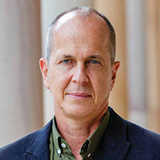The war on terror has created a sense of public paranoia and a broad sense of secrecy, which has also evolved out of political and historical pressure.
As the implications of federal police raids on two Australian press outlets in June reverberate around the world, LSJ examines how critical press freedoms can be balanced with national security.
Just weeks before the Australian Federal Police (AFP) executed a search warrant at News Corp political editor Annika Smethurst’s home, and followed it up with a raid on the ABC’s national headquarters at Ultimo the next day, the Alliance for Journalists’ Freedom (AJF) released a white paper recommending a Media Freedom Act and urgent reform of laws encroaching on journalists’ ability to do their jobs.
Former Al Jazeera journalist and AJF Director Peter Greste tells LSJ he was shocked by the police action, but not surprised.
“The white paper predicted pretty much everything that took place … it warned national security legislation was criminalising journalism, it warned whistleblowers were becoming difficult to protect, and it warned against an overall culture of secrecy,” he says.
Regarded by many as an attempt to intimidate journalists and their sources, the raids have galvanized the usually hyper-competitive media industry and led to calls for immediate law reform.
In the wake of the raids, a question for the community, Parliament and courts is how to protect the public’s safety while preserving their right to know in a post-9/11 environment.
Greste acknowledges the need for government to maintain confidentiality over certain information, but believes a culture of secrecy has developed in Australia that imperils democratic principles.
“The war on terror has created a sense of public paranoia and a broad sense of secrecy, which has also evolved out of political and historical pressure,” he says.
“But the net effect has been to undermine the transparency and accountability that has made our country one of the safest in the world.”
The AFP raids were the result of investigations into alleged leaks of government information reported by journalists at the ABC in 2017 and News Corp in 2018. Smethurst was given no warning before AFP officers knocked on the door of her Canberra home on 4 June.
She recalled an announcement about an investigation after the story was published, but assumed any investigation had been dropped.
“There was no indication that, 13 months later, they would come to my door,” she says.
When they did, Smethurst invited them in and called her employer. Seven hours later, AFP officers left with electronic material and content from her phone.
The next day in Sydney, AFP officers spent nine hours at ABC offices in the company of lawyers, an IT specialist, and the Head of Investigative Journalism, John Lyons.
Unlike Smethurst, the ABC had notice of the AFP’s arrival and camera crews were waiting.
Lyons stayed with the group throughout the day as officers searched for material. He watched on as documents, many of which might have contained confidential information, were projected onto a large screen for everyone to see.
“It felt like a demeaning moment as a journalist,” says Lyons.
“To me it was a complete assault on journalist public confidentiality. It was like a doctor’s records being exposed for all the world to see.”
The AFP departed with dozens of electronic files after giving undertakings about not accessing or disclosing information contained in the material for an agreed period. The ABC considered its legal position.
 Peter Greste
Peter Greste
A unifying effect
The response to the raids was swift and emphatic. Senior executives from News Corp and the ABC condemned them and declared support for their reporters and their right to publish.
Journalists, lawyers and advocacy groups criticised the police action and warned of the implications for whistleblowers and public interest journalism. The international press reported it all.
Gaven Morris, Director of News, Analysis and Investigations at the ABC, tells LSJ that although the ABC knew the AFP had been investigating the alleged leak, he was nevertheless surprised when officers arrived at Ultimo.
“I’ve never seen anything like it,” he says. “Two media organisations on two consecutive days. There’s no doubt we’re in new territory now.”
Human Rights Commissioner Edward Santow says it was interesting that the raids were covered so extensively in the overseas press.
“It was a common experience of shock that representatives of the media would be subjected to raids in a liberal democracy like Australia,” he says.
In a show of unity, in late June Michael Miller of News Corp, Hugh Marks from Nine Entertainment Co, and the ABC’s David Anderson appeared together at the National Press Club calling for reform of laws the industry says have criminalised journalism and curtailed the public’s right to know.
The AJF is also advocating a Media Freedom Act that would enshrine the principle of freedom of the press in legislation, as well as introduce safeguards and protections for journalists, their sources, and confidential information. Greste recognises this legislation might be a long-term proposition, but he wants it to be part of the discussion.
“We’d like it to be at the centre of the conversation,” he says.
“We think it’s a strong, achievable way of getting what we’re trying to do.”
Despite the media’s demands for immediate change, there are now two parliamentary inquiries into press freedom underway – one by the Parliamentary Joint Committee on Intelligence and Security, and a second by the Environment and Communications References Committee. Both inquiries will report later in the year.
Morris says he welcomes any discussion or examination of laws that impact the way journalists do their job.
“The more we can make transparent the way these laws are enacted and enforced, the better it is, whether it’s a discussion at the press club or a parliamentary inquiry,” he says.
 Edward Santow
Edward Santow
It was a common experience of shock that representatives of the media would be subjected to raids in a liberal democracy like Australia.
Press freedom versus security
Jacinta Carroll, Senior Research Fellow at the ANU’s National Security College, tells LSJ the public discussion and inquiry process is an important opportunity for the government and media to improve their understanding of the role of national security and the need for effective reporting.
“The current debate on national security and press freedom demonstrates there is a very low level of public and media understanding about how security classification and access to classified information works, the various ways of safely and securely raising any concerns about matters that are classified, the nature of Australia’s security-related laws, and harm of unauthorised disclosure,” she says.
“Much of the media discussion on the issue … indicates that there is also frustration on the part of the media about the government’s willingness to engage effectively with the media, and a perception of secrecy.”
Whistleblowers, sources and confidential information are critical to investigative journalism, but legislation has diminished the media’s ability to guarantee anonymity, rendered whistleblowers more vulnerable, and created an environment in which journalists can be monitored, investigated and prosecuted for dealing with certain types of information.
These developments have given rise to concerns about a chilling effect on public interest journalism, and news organisations, interest groups and lawyers are calling on legislators to address the problem.
The reforms they’re advocating include the introduction of a public interest defence for journalists in specific legislation, limiting the circumstances in which a journalist’s metadata can be accessed, ensuring contestability and judicial oversight of warrant applications, and protecting disclosures made in the public interest.
The proposals are not intended to put the press above the law, but to ensure the value of public interest journalism and the media’s role in keeping the public informed are preserved.
Although it’s difficult to measure any chilling effect, some journalists are reporting a shift, particularly since June.
A journalist of 18 years, Nick McKenzie has won numerous awards for his investigative reporting.
In the first test of Victoria’s Journalist Privilege or shield laws, he was successful in resisting an interlocutory application to reveal his sources. Day to day, McKenzie goes to extraordinary lengths to protect contacts and confidentiality.
“I have to operate like a drug trafficker,” he tells LSJ.
“I have to use all the tools of someone engaged in organised crime to conduct my lawful job of investigative journalism … A public interest whistleblower might now be far less willing to provide information, fearing they might leave an evidence trail that will land them in hot water.
“I’ve had sources emailing me saying, ‘Please delete all communications, I’m absolutely terrified’.”
At the ABC, Morris says he’s had feedback from editorial managers who feel sources have changed their minds about disclosing information and taking part in investigations because of the raids, and a fear of being exposed.
“If that is true, and I’ve no reason to doubt it is, then it is a serious threat to our democracy,” he says.
 Jacinta Carroll
Jacinta Carroll
Due to the … impact of the laws, additional measures have been put in place to enhance oversight. These include [an] Independent National Security Legislation Monitor, as well as statutory reviews by Committee, and sunset clauses in some cases.
Time for change
The consequences of the AFP’s warrants are now playing out in the courts, Parliament and in the community.
The ABC and News Corp have initiated separate legal proceedings in response to the raids. Both are challenging the validity of the warrants and raising constitutional questions.
Dr Rebecca Ananian-Welsh from the University of Queensland believes these challenges have the potential to entrench a clearer role for press freedom.
“There has not been an implied freedom case that so squarely focuses on the role of a free press in our constitutional democracy … the implied freedom rests upon the need to preserve representative and responsible government by ensuring voters can make a free and informed choice at elections,” he says.
“The media plays a crucial role in that … it would be open to the courts to find that a core or minimum standard of press freedom must be maintained under the Constitution.”
Greste believes the raids have stirred community concern.
“People understand directly or indirectly that we need an independent source of news and information,” he says.
“They might not think the media is necessarily doing a good job, but from the reaction we’ve seen to the raids, they gave people a very visceral, clear understanding of what it looks like when press freedom is undermined – and that has made people think a lot more seriously about it.”
Professor George Williams and Dr Kieran Hardy estimate that the Federal Parliament has passed about 75 counter-terrorism laws since 2001, and a 2015 survey revealed that on hundreds of occasions, state and federal legislatures have enacted laws that undermine democratic rights. Australia is the only western democracy that does not protect freedom of speech in its Constitution or a federal Bill of Rights.
Commissioner Santow tells LSJ there are two ways of filling gaps in human rights protections, including freedom of expression.
“The first way is piece by piece as issues come to the fore, but you don’t end up with a comprehensive response,” he says. “The second way is to look to fully incorporate international human rights law into federal legislation.”
In the last session of Parliament, Senator Rex Patrick tabled a bill proposing a constitutional amendment to protect “freedom of expression, including freedom of the press”.
Senator Patrick says despite the hurdle of a referendum, if successful, a constitutional amendment would ensure consistency and certainty.
Santow tells LSJ that such a large number of laws gives rise to complex interactions. He suggests it might now be time to evaluate their practical impact.
“After almost two decades of active legislative reform, it seems timely to take stock and do a more comprehensive review,” he says. “The raids reminded us that Parliament passes laws and gives new powers with a view to those laws being used.”
Jacinta Carroll argues, however, that despite the volume of legislation, there are already safeguards in place to protect individual rights.
“Australia has enacted a range of laws to address security threats … In a liberal democracy such as Australia, which values human rights, it is important that such laws are only enacted when appropriate and are subject to scrutiny and oversight,” she says.
“Due to the acknowledged impact of the laws – in particular on citizens – additional measures have been put in place to enhance oversight. These include the establishment of an Independent National Security Legislation Monitor, as well as statutory reviews by committee, and sunset clauses in some cases.”
Whether it’s legislative changes to address specific media industry concerns, or wider reform to entrench freedom of expression and other rights, the attitudes of legislators to the media and its role in Australia’s democratic system will be crucial.
Professor Williams says while media freedom is only one aspect of a bigger problem, a pragmatic approach is necessary.
“The bottom line is we’re not short of solutions – what we are short on is political will,” he says.
“It comes back to, do our politicians take press freedom seriously? Are they willing to make changes in light of the concerns that have arisen? To this point, we don’t have evidence that that is the case.”




